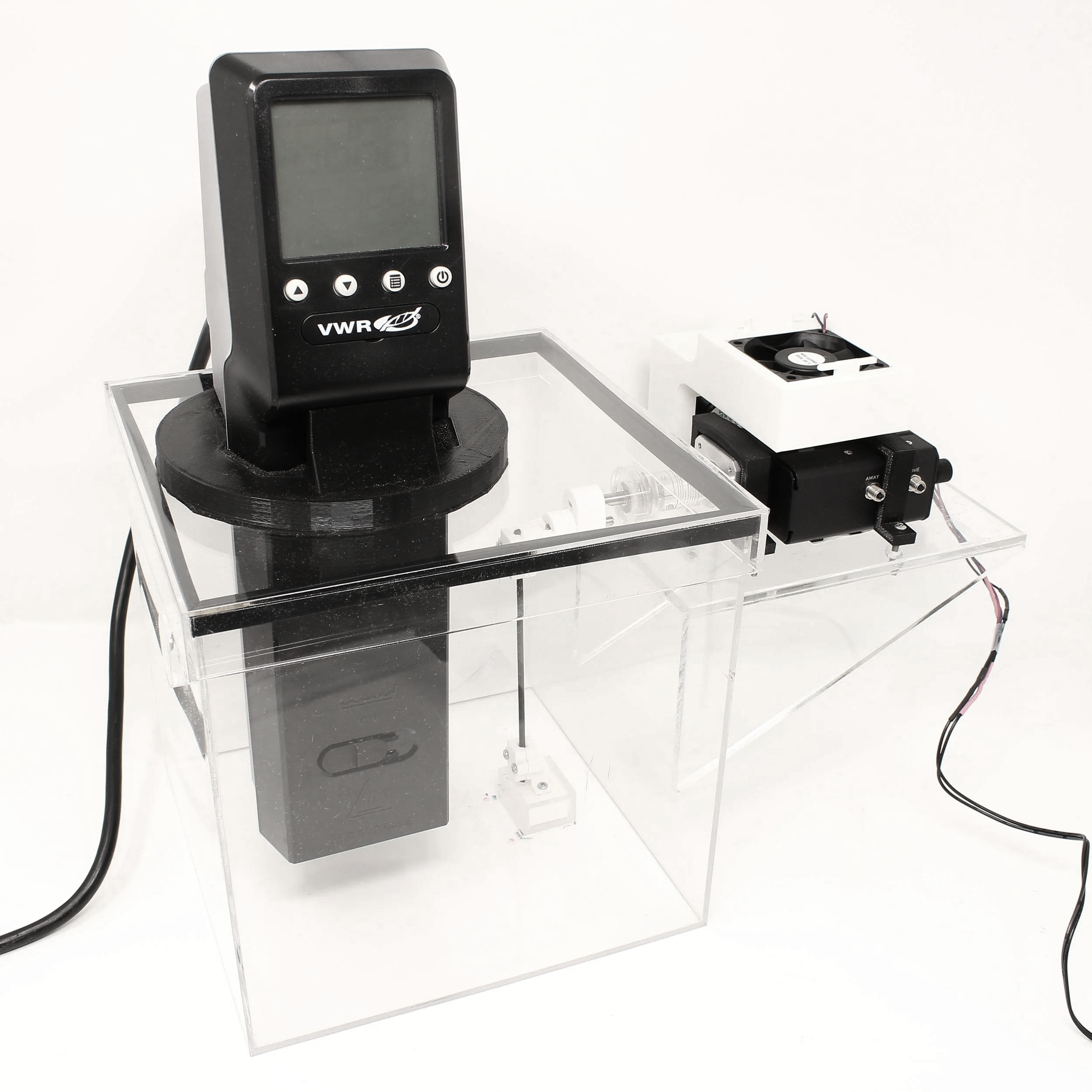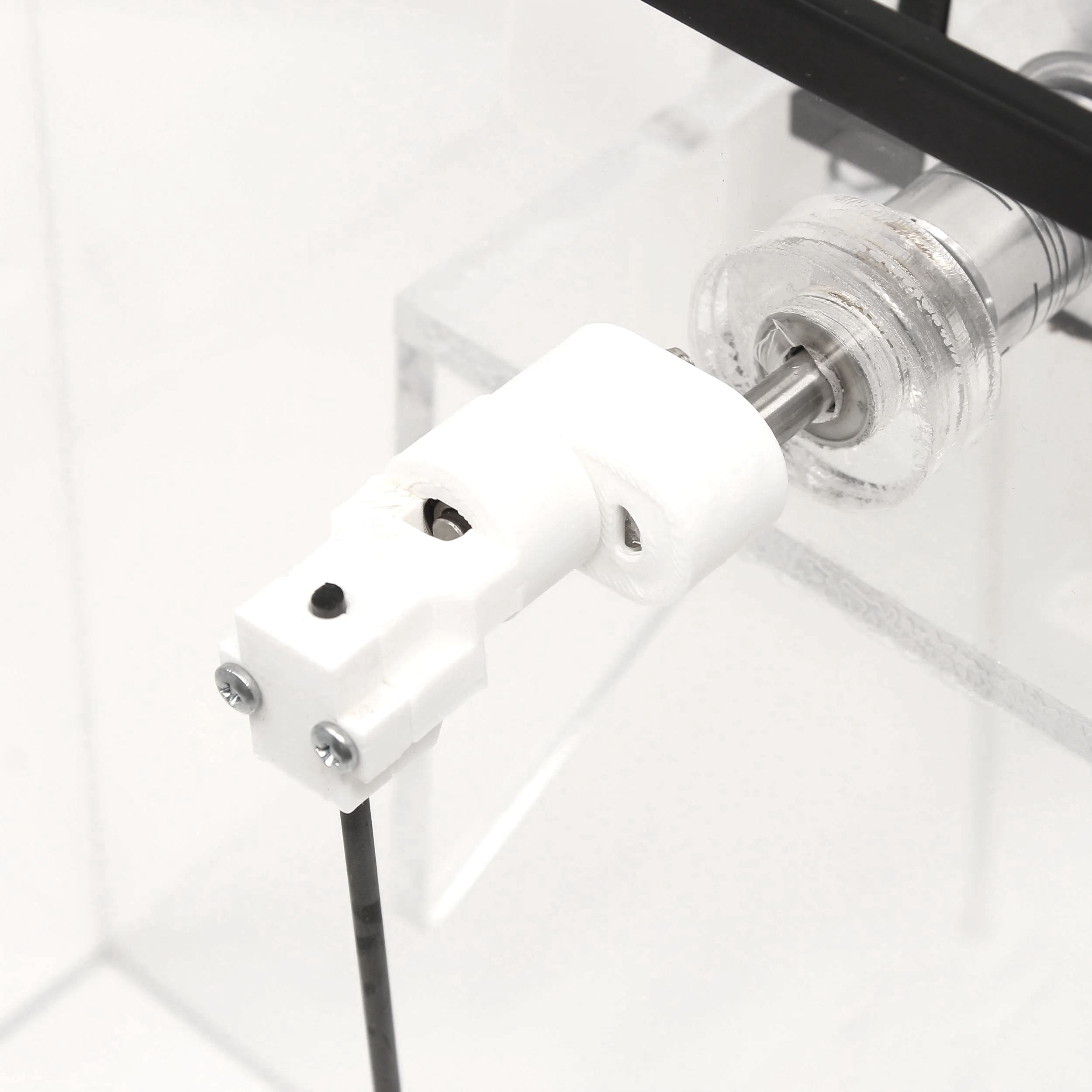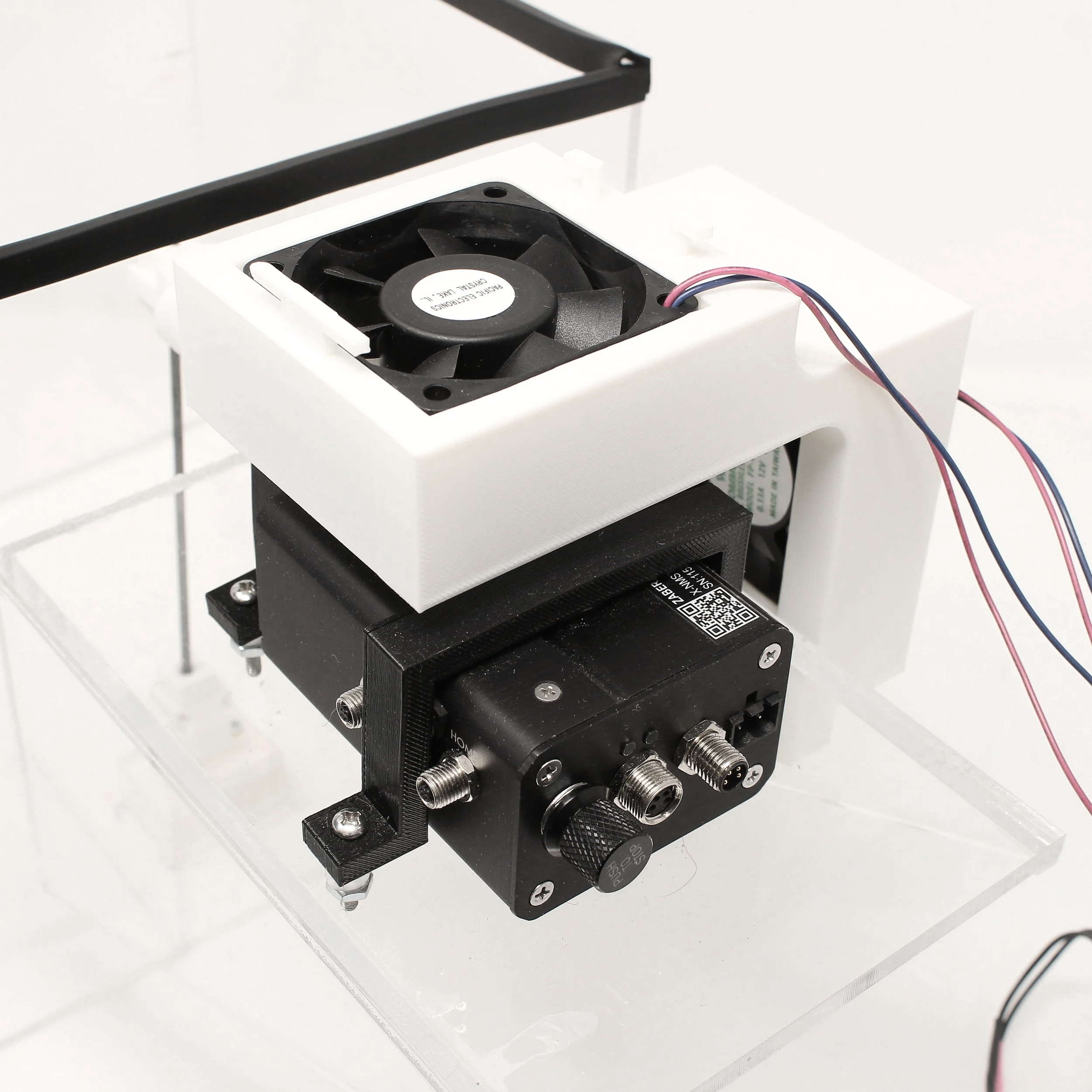The sample is mounted and submerged inside the acrylic box
Dynamic hydrogel grips translate rotational motion into uniaxial strain
Custom active cooling system
High cycle fatigue testing device
A custom-built chamber for subjecting conductive hydrogels to millions of strain cycles under controlled, physiological conditions. It combines motion control, temperature regulation, sample submersion, and long-duration reliability testing in a compact, low-cost (< $2,500) platform.
Purpose
Evaluate the fatigue performance of soft, conductive hydrogels.
Replicate physiological loading conditions while submerged.
Provide accurate cycle counting for extended-duration tests up to 8 million cycles.
Mechanical Design
Actuation — Zaber stepper motor with integrated encoder driving a custom rotating offset shaft, converting rotational motion to uniaxial strain.
Cycle Capability — Capable of delivering millions of load cycles with adjustable amplitude and frequency.
Enclosure — Custom acrylic test chamber for fluid containment and visibility.
Cooling — Active cooling system prevents motor overheating during extended runs.
Environmental Control
Temperature Regulation — VWR thermocirculator maintains physiological fluid temperature throughout testing.
Submersion — Samples remain fully submersed for realistic conditions.
Control & Data Acquisition
LabVIEW — The user controls the test via an intuitive LabVIEW GUI .
Encoder Feedback — Integrated motor encoder tracks cycle count with high accuracy.
Adjustable Parameters — Rotation speed, offset distance (strain), and fluid temperature can be tuned for different test protocols.
Key Benefits
Enables accelerated life testing of soft materials under realistic conditions.
Long-term operation with stable temperature and active motor cooling.
Compact, modular, and low-cost compared to commercial fatigue testers.



